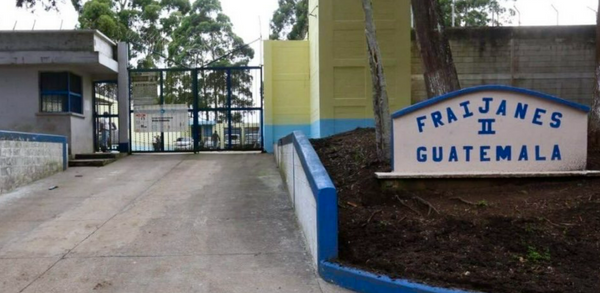Do all humans possess a unique nature? Or, do personalities get driven by how they are nurtured? E.O. Wilson sought an answer — even if meant the scientist experiencing the public humiliation of getting doused with cold water.
In February 1978, the Harvard University biology professor and specialist on ants gave a talk on "nature vs. nurture" at the annual meeting of the American Association for the Advancement of Science. But before he reached the lectern, several attendees rushed Wilson. They grabbed the microphone. Then, a young woman poured a pitcher of ice water over his head.
The protesters, members of the Committee Against Racism, accused the scientist's theory of being one that advocated genetic determinism.
Scientist E.O. Wilson: Work Past Controversy
"I said to myself, 'This is very interesting. I'm going to be the only person ever attacked in recent years for an idea'," Wilson said in an interview with the New York Times. Wilson over his life revolutionized biology, sparking new insights in biodiversity and becoming a bestselling science author.
The incident did not stop him. Later, the 1978 book "On Human Nature" earned his first of two Pulitzer Prizes in nonfiction writing. The lanky scientist co-wrote "The Ants" with Bert Holldobler in 1990 to earn a second accolade.
Actually, the controversy took root in 1975. That year, Wilson wrote "Sociobiology: The New Synthesis." The textbook-size tome surveys the evolutionary, genetic and environmental factors that affected behaviors of numerous species. It discussed social hierarchies created by baboons. It explained reasons why beavers were among the few animal species that practiced monogamy. The book also compared the social development of the human race with those of animals.
Yet Wilson took heat from other Harvard scientists. They included paleontologist Stephen Jay Gould. Still, Wilson hit back hard at his critics.
"They disliked the idea, to put it mildly, that human nature could have any genetic basis at all. They championed the opposing view that the developing human brain is a tabula rasa (clean slate)," Wilson wrote in a 1999 preface to the 25th anniversary edition of "Sociobiology."
Stand Up To Critics
Today, scientists still credit E.O. Wilson's theory for explaining some of nature's mysteries. For example, why does a sentinel among a flock of birds risk its life against predators? Or, why do bees sacrifice their bodies to protect the colony queen?
Wilson and others argued such altruism has a benefit. It allows survivors of the same species, carrying many of the same genes, to pass along key traits to the next generation.
Wilson's curiosity, doggedness and creative research methods powered a prolific career. Born in Birmingham, Ala., on June 10, 1929, Edward Osborne Wilson wrote 32 books and numerous papers. He starred in TV documentaries, including "Lord of the Ants." He died in Burlington, Mass., on Dec. 26, 2021.
Significantly, Wilson figured out how ants communicate with pheromone signaling. But the insect scholar also raised public awareness of the threat to global biological diversity. In his 2016 book "Half Earth: Our Planet's Fight for Life," Wilson proposed setting aside about half of the earth's surface as a natural reserve.
"We are destroying species that were built up over millions of years and are invaluable to society and for generations, and we don't know how fast they're disappearing," Wilson told the New York Times. Global efforts to address his concern are being pursued.
E.O. Wilson: Foster Curiosity
In the summer of 1936, Wilson's parents set him up at a family's boardinghouse on Paradise Beach, located in Perdido Bay near Pensacola, Fla. That summer changed the boy's life. One morning, he found a medusa jellyfish with an opalescent pink bell and long tentacles that concealed a feeding tube and organs. The scyphozoan, known as Chrysaora quinquecirrha, mesmerized the boy for days.
"Paradise Beach was paradise truly named for a little boy. Each morning after breakfast I left the shore front house to wander alone in search of treasures along the strand," Wilson wrote in his 1994 autobiography, "Naturalist." Later, he spotted green torpedo fish, blue crabs, bottlenose porpoises and stingrays. One day he caught a toadfish, whose appearance horrified most residents. Wilson kept the fish in a bottle for a day to observe, then let it free. Wilson's parents also let him catch black widows and study them in jars.
Wilson saw waterways as timeless and inexhaustible. A child is "ready to grasp this archetype, to explore and learn, but he has few words to describe his guiding emotions. Instead he is given a compelling image that will serve in later life as a talisman, transmitting a powerful energy that directs the growth of experience and knowledge. He will add complicated details and context from his culture as he grows older," Wilson wrote.
Overcome Obstacles Like E.O. Wilson
Meanwhile, Wilson lost sight in his right eye that same summer. He yanked too hard on his fishing pole. Sharp needle hairs popped out of a pinfish's dorsal fin. Unfortunately, they pierced the boy's pupil. It led to a massive cataract. Luckily, he kept 20/10 acuity in his left eye. Wilson also lost hearing in the upper registers of sound. That made him, in his own words, "lousy at bird-watching." So he focused on insects.
After attending Gulf Coast Military Academy near Gulfport, Miss., Wilson lived in Washington D.C. He continued to explore the insect world. Encouraged by a myrmecologist at the National Museum of Natural History, Wilson began a survey of ant species in Alabama. He reported the first colony of fire ants in the state near Mobile, Joshua Blu Buhs wrote in "The Fire Ant Wars."
Unfortunately, Wilson failed the U.S. Army's medical exam due to his impaired eyesight. Instead, he took home bachelors and masters degrees in biology at the Univ. of Alabama in 1950. The next year, he continued graduate studies at Harvard. In 1973, the university appointed him as head of entomology at the Harvard Museum of Comparative Zoology.
To figure out how ants communicated, he enlisted fellow teachers and students in 1958. Then they drove to Florida to collect huge masses of fire ants. The game plan? Extract enough pheromone secreted by the Dufour's gland, discovered by Wilson's naked left eye, then use that biochemical in a lab to see how it influenced ant behavior.
E.O. Wilson: Know When To Wait
The puzzle was more complex, though. Wilson found the pheromone steered other ants' movement for just a short time. Wilson speculated the wearing-off effect meant a mixture of substances, not just the single pheromone, was needed to control other ants.
His colleagues agreed. But they saw no way to study such a compound given the current state of their chemical-analysis technology. Wilson's blunt conclusion, which speaks to what had been, after so much work, real pain: "We quit," Richard Rhodes wrote in "Scientist: E.O. Wilson: A Life in Nature."
In short, Wilson kept scientific integrity. Later, in 1981, a team led by the director of the U.S. Department of Agriculture's fire-ant lab in Gainesville, Fla., teased out the complete batch of pheromones produced inside the ant's special gland. It was considered a victory of science.
Treat Others With Respect
Wilson also taught lessons about human communication. He and fellow Harvard teacher and DNA research pioneer James Watson often traded barbs publicly about their approaches to science.
Wilson took offense from Watson's insistence that "old biology needs to go away because now the wave of biology was molecular biology," Wilson said. "And he was very rude about that."
Eventually, though, they agreed to notch down their fight. The scientists even appeared on a roundtable talk show on TV. Plus, Wilson continued flashing his Southern smile all the way up to his last days of teaching.
"Dr. Wilson was a gentleman and an inspiration to the students. He frequently received acclamation at the end of his lectures in (room) Science B-15," Kathleen Horton, longtime assistant to Wilson told IBD.
E.O. Wilson's Keys
- Two-time Pulitzer Prize winning author for his science writings, considered the father of biodiversity studies and insect specialist.
- Overcame: Loss of eyesight in one eye due to a childhood fishing accident.
- Lesson: "We are destroying species that were built up over millions of years and are invaluable to society and for generations, and we don't know how fast they're disappearing."
Please follow Chung on Twitter: @saitochung and @IBD_DChung







